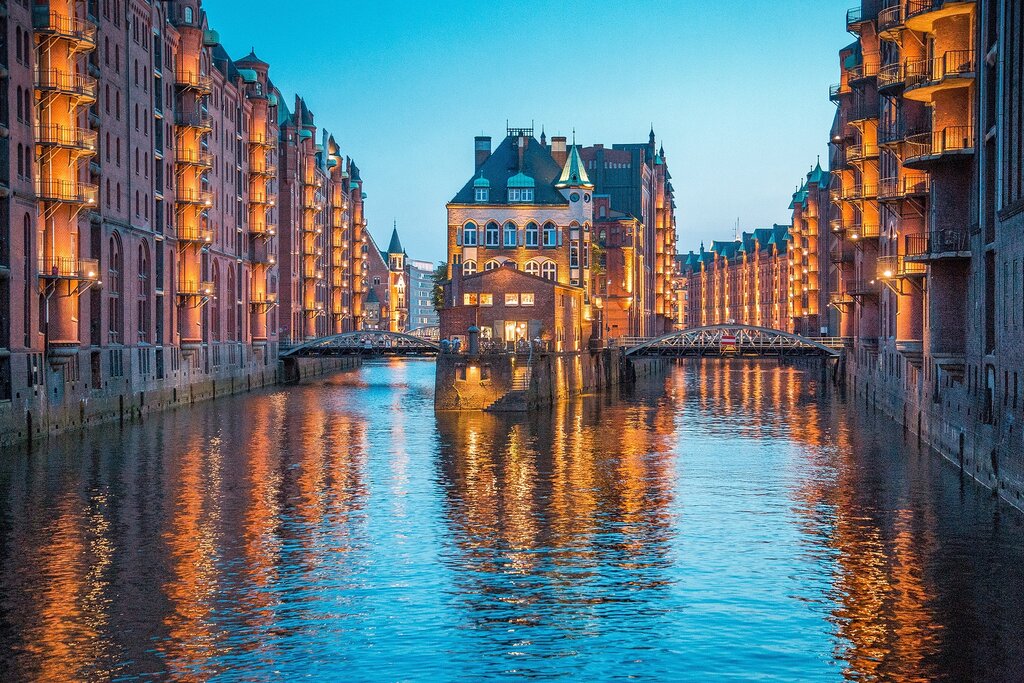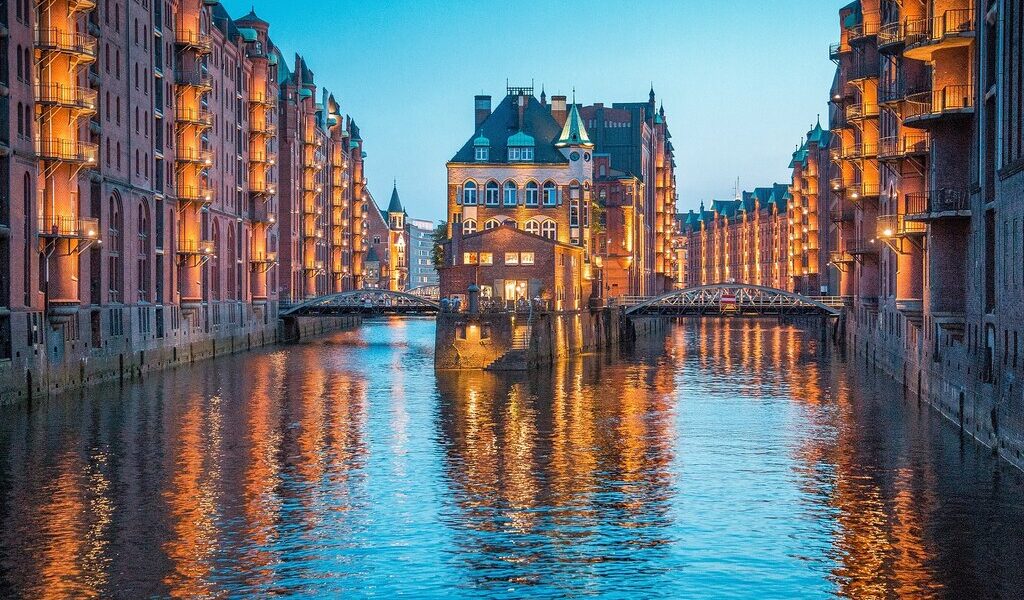
March is the hopeful transition toward spring with milder temperatures for exploring Germany’s cutting-edge cities. Meanwhile, winter sports enthusiasts will still have plenty to keep them active in the Bavarian Alps, perhaps capped off with a strong beer festival in Munich.
Germany in March: A Comprehensive Travel Guide
## Weather in Germany During March
Germany in March presents a fascinating climatic transition. While the vestiges of winter still cling to the landscape during the initial weeks, a gradual shift towards spring becomes increasingly apparent as the month progresses. The gradual ascent of the thermometer is welcomed, further enhanced by the lengthening daylight hours that infuse the days with a brighter quality. In Berlin, the nation’s vibrant capital city, the average daily high temperatures hover around 48°F (9°C), while the lows dip to approximately 34°F (1°C). Prepare for brisk mornings and evenings, making warm layers essential for comfortable exploration.
It is important to acknowledge that variations in weather patterns exist across different regions of Germany. The northern coastline, fringing the North and Baltic Seas, experiences a maritime climate, characterized by higher levels of moisture and stronger winds. While the frigid chill may be less pronounced in these coastal areas, visitors should anticipate the possibility of rain and blustery conditions. Conversely, the eastern and southern regions of Germany tend to experience colder temperatures, particularly in the earlier part of March. These areas may still be subject to lingering winter conditions, including frosty mornings and the occasional snowfall. The southwestern regions of Germany, blessed with a slightly more temperate climate, offer the most promising glimpses of spring. For example, Frankfurt typically enjoys an average daily high of 52°F (11°C) and an average low of 37°F (3°C) during this month.
The likelihood of encountering snow in March remains a factor, dependent on the specific location within Germany. However, travelers should generally prepare for a diverse range of weather conditions and precipitation types. Packing appropriately is crucial. A warm winter coat is essential, along with gloves, a hat, and other cold-weather accessories, especially for those planning to engage in extensive sightseeing in cities like Berlin and Munich. Additionally, a waterproof jacket and umbrella are highly recommended to provide protection from potential wet weather days. Being prepared for various weather scenarios will ensure a more enjoyable and comfortable travel experience throughout Germany in March.
## Navigating Crowds and Costs in March
March is generally considered part of the off-season in Germany, a period that presents travelers with unique advantages. During this time, popular tourist destinations tend to be less crowded, allowing for a more relaxed and intimate experience. Moreover, the off-season often translates to significantly lower rates for various travel expenses, including flights, accommodations, rental cars, and organized activities. This makes March an ideal time for budget-conscious travelers seeking to explore Germany without incurring peak-season costs.
However, it’s important to exercise caution if Easter falls early and coincides with the end of March. In such instances, a notable surge in prices and tourist crowds can be expected as many Europeans take advantage of the holiday to travel. To mitigate the potential impact of this increase, it is advisable to book flights, hotels, and activities well in advance to secure availability and potentially benefit from early-bird discounts. Travelers seeking the most affordable options should aim to plan their trip before the week leading up to Easter to avoid the holiday rush.
For those interested in winter sports, the ski resorts nestled within the majestic Bavarian Alps typically remain operational through the end of March, contingent upon prevailing snow conditions. A significant advantage of skiing in Germany compared to neighboring Alpine countries is the generally more affordable price of ski passes, particularly during the midweek period when local residents return to work. This provides an excellent opportunity for visitors to enjoy the slopes with fewer crowds and potentially even have the pistes largely to themselves.
## Destination Recommendations: Where to Go in Germany
Berlin, the dynamic capital city, serves as an excellent starting point for first-time visitors to Germany. The recent opening of the sleek Berlin-Brandenburg Airport has further enhanced the city’s accessibility. With its twelve distinct boroughs, each offering a unique tapestry of activities, historical landmarks, and cultural attractions, Berlin provides ample opportunities to keep travelers engaged for an entire week. For those relying on public transportation to explore the city’s diverse offerings, selecting a hotel in close proximity to a U-Bahn station (the rapid transit system) is highly recommended, considering the still-cool temperatures that persist in Berlin during March. Neighborhoods such as Mitte are particularly appealing, boasting a wide array of popular sights, renowned art collections, and captivating exhibitions. Alternatively, visitors seeking an immersion in counter-culture can easily find it in trendy neighborhoods like Friedrichshain and Kreuzberg, known for their alternative art scene, vibrant nightlife, and unique local character.
Beyond Berlin, Germany’s other major cities – Munich, Hamburg, and Frankfurt – each possess their own distinct local color and a compelling array of attractions. Hamburg, an up-and-coming metropolis, is renowned for its thriving arts and culture scene, as well as its UNESCO-listed warehouse district, a testament to the city’s rich maritime history. Munich is an ideal choice for travelers who wish to explore the breathtaking Bavarian Alps, either by train or rental car. Among the various resorts nestled within the Alps, Garmisch-Partenkirchen stands out. This charming town, which hosted the Olympics in 1936, is conveniently located less than two hours by train from Munich. Day trip options from Munich also include Stuttgart and Nuremberg, each offering its own unique historical and cultural attractions.
Frankfurt, home to Germany’s busiest airport, provides convenient access to both the Rhineland and the Black Forest. These picturesque regions are known for their stunning landscapes and tend to experience spring earlier than other parts of Germany. Consider embarking on a tour of the magnificent Eltz Castle, a medieval fortress perched atop a rocky outcrop. Alternatively, spend a relaxing night in the spa town of Baden-Baden, situated near the French border, where you can indulge in rejuvenating thermal baths after a long flight. Another easily accessible train trip from Frankfurt leads to the historic city of Cologne, renowned for its impressive medieval architecture and the annual Cologne Literature Festival, which takes place in March.
## Activities and Experiences: What to Do in Germany in March
March presents an opportune time to explore Germany’s cities as the country awakens from its winter slumber. Plan your days to incorporate a balance of indoor and outdoor activities to maximize comfort and enjoyment. In Hamburg, consider purchasing a three-day pass to gain access to the city’s top five renowned art institutions. Explore the city’s intricate network of canals through a boat tour and discover the historical significance of the port, once a bustling hub of international trade during the Hanseatic League era. In the evening, immerse yourself in the city’s vibrant dining and drinking scene or attend a captivating concert performance at the spectacular Elbphilharmonie, an architectural masterpiece designed by Herzog & de Meuron.
While in Berlin, a visit to Museum Island, a UNESCO World Heritage Site, is an absolute must. This cultural enclave houses a collection of world-class museums dedicated to antiquity and history, including the renowned Pergamon Museum, famed for its life-size reconstructions of ancient structures. Take the time to admire the iconic Reichstag building, Germany’s parliament, which bears the scars of WWII bombings. Walk around the glass dome that surmounts the building and then head to Tiergarten, Berlin’s expansive central park, for an early spring bike ride. Explore Berlin’s diverse neighborhoods, from elegant districts to hipster enclaves, by utilizing the U-Bahn. For a truly unique experience, consider renting a Trabi, the iconic car manufactured during the communist era, and explore the city in this vintage vehicle.
Winter sports enthusiasts can still indulge in alpine adventures throughout March, although it’s worth noting that snow conditions may begin to diminish as the month progresses. Check the quality of the ski conditions before heading out to the slopes to ensure an optimal experience for skiing, cross-country skiing, or snowshoeing. Depending on the snowfall, there may be opportunities for winter hiking, while caves and glaciers can be explored year-round. Additionally, consider taking a ride on the cable cars to reach panoramic viewpoints. One particular destination to consider is Zugspitze, Germany’s highest mountain, offering breathtaking vistas of the surrounding landscape.
Bavaria is also home to a wealth of enchanting fairy-tale palaces and fortresses, nestled amidst picturesque alpine villages and majestic mountains. One notable example is Neuschwanstein Castle, the iconic creation of King Ludwig II. Conclude your trip with a return to Munich and seek out the biergärten (beer gardens) that may begin to open towards the end of March. Beer aficionados should keep an eye out for the Starkbierfest, a strong beer festival that is often held in Munich during this time of year.
## March Events
**Starkbierfest, Munich.** This beer festival celebrates Bavaria’s stronger beers and is held for a few weeks between Lent and Easter. It’s a low-key fest compared to Oktoberfest and is beloved by locals. Look for celebrations at different beer halls and breweries around Munich, like Paulaner am Nockherberg.
**Cologne Literature Festival, Cologne.** This international literary festival holds unique events across the city every March, highlighting writers, illustrators, and even musicians.
**Leipzig Book Fair, Leipzig.** This is an important event in the spring for the book and media industry. The fair takes place annually over four days in March at the Leipzig Trade Fairground.
**Easter and Holy Week, nationwide.** Easter may fall in late March or April, depending on the year, and it’s a major holiday in Germany. Locals use this holiday to celebrate the end of a long winter with spring decor and more time outside. Traditional Easter egg hunts are popular throughout the country, while more religious events can be found in Bavaria. If visiting during the holiday, look for restaurants serving a traditional lamb lunch.
B-915

